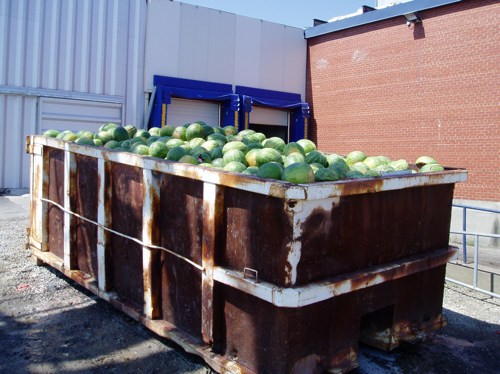Foundation Establishes Computer Science Student/Non-Profit Partnership; Recipient Helps the Hungry
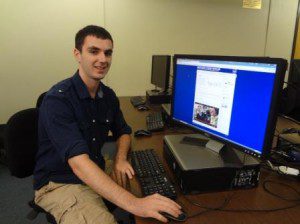
Sean Wiese at the computer demonstrating BFR's new web application
Local non-profits often do not have the funds necessary to meet the technology needs necessary to advance their missions. Recognizing that need, the Casey Feldman Foundation established a program that pays stipends to computer science students to work for non-profits. The computer science student receives valuable experience and the non-profit gets a better website, necessary software applications, social media assistance, e-newsletters or blogs for their organization.
Programs have been established at a number of universities, including Villanova, the University of Colorado and Southern Connecticut State University. Non-profits that have benefitted include Gilda’ Club (support for families of cancer patients), Francisvale Home for Smaller Animals and Boulder Food Rescue (BFR).
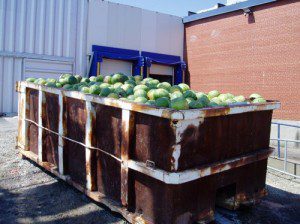
Thousands of pounds of good food go into dumpsters each day
Sean Wiese was the first student at the University of Colorado to receive a stipend to assist a non-profit, Boulder Food Rescue (BFR). BFR rescues and redistributes perishable food “waste” to charities that serve homeless and at-risk individuals with the goal of helping to solve the problems of hunger, malnutrition, and food waste in the community. Focusing on nutritious fruits and vegetables that would that would not otherwise be available to their recipients, volunteers pick up food from small and large markets, cafes, restaurants, bakeries and the University. While doing so, they work to have minimal environmental impact by transporting the food with bicycles directly from donors to recipients. Some 170,000 pounds of produce and baked goods have been diverted from dumpsters in the last year since the organization was established.
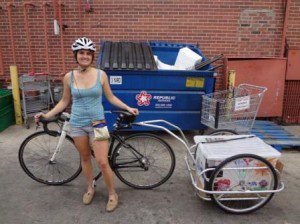
A BFR volunteer making a pickup at Whole Foods in Boulder
This non-profit was having difficulty with scheduling between donors, recipients and its more than 70 volunteers that pick up and deliver the food. Sean Wiese, a concurrent BS/MS Computer Science major, designed a software application to meet the needs of BFR. The web application allows organizations that donate or receive food from Boulder Food Rescue to input pickup and delivery information. An intelligent planning algorithm then takes in pickups, deliveries and volunteer schedules to plan optimal pickup schedules for its volunteer force. The goal was to enable BFR to optimize its limited resources and enable it to handle more pickups. Already, the organization has increased its pickups and deliveries by hundreds of pounds per week.
Sean, who will be working as a software development engineer for Microsoft upon graduation in May, has already had two corporate internships during college. Asked about his experience with BFR, Sean stated that it was immensely gratifying to give back to the community and use his skills to aid such a worthy charity. In addition, “The hands on experience outside the classroom has helped to prepare me for my upcoming job at Microsoft.”
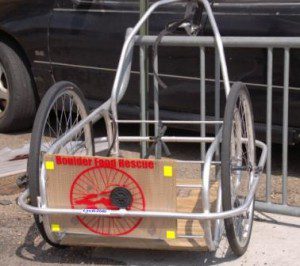
BFR minimizes its environmental footprint by making deliveries and pickups by bicycle
Related Links:
“Class project helps divert 170,000 pounds of food from the dumpster”, University of Colorado – Boulder
“Sean Wiese Receives First Casey Feldman Award for his work with Boulder Food Rescue“, University of Colorado – Boulder


